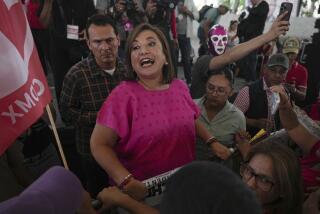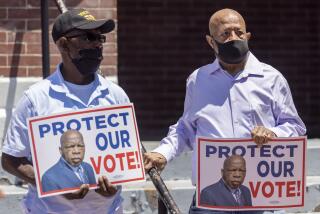Honesty: a winning policy
Of all the lessons of the Vietnam War, one is particularly important to heed this year as Afghanistan prepares to elect a president.
In the early 1970s, while the United States engaged in separate negotiations with the North Vietnamese in Paris, an egregiously unfair presidential election took place in Saigon.
The sitting president, Nguyen Van Thieu, was widely considered corrupt, and the U.S. government knew this. But we not only supported him, we also condoned Thieu’s manipulation of the elections laws to eliminate any potential competition, reinforcing a corrupt regime that had lost the faith of its people.
Calling support for Thieu “an imperative of our national interest,” President Nixon’s national security advisor, Henry Kissinger, conceded later that “Thieu’s methods were unwise,” but wrongly claimed that forcing him to risk a fair election would have required “cutting off all military and economic aid,” which the U.S. was unwilling to do.
The result? In the words of Thieu’s own ambassador to the U.S., the rigged election “would prove the most destructive and destabilizing factor of all.” Ultimately, the election undermined an opportunity for the U.S. to leave behind a country whose national leadership had strong citizen support and therefore a chance to survive.
President Obama has spoken about the importance of this year’s presidential election in Afghanistan (set for August), and the U.S. has offered $40 million to help fund election mechanics. But no mention has yet been made of ensuring the election’s honesty.
Two things are widely unpopular in Afghanistan: the Taliban and the government of Hamid Karzai. Karzai’s government, like that of Thieu in Vietnam, is widely believed by his people to be corrupt.
Free and honest elections would undermine the Taliban, which opposes the very idea of a popular vote. They would also help the Afghan government regain the trust of the people. But if the election is perceived to be rigged, it will further undermine the government in favor of the Taliban and sap American public support for our continued engagement.
Because Afghan elections are entirely dependent on outside financing, the United States, together with its partners at NATO and the U.N., could have enormous influence over how they are organized and run. But only if we condition assistance on practical measures such as creating a combined international-Afghan monitoring group capable of adjudicating complaints during the election campaign, not just after the results are in. We must ensure that the Afghan army and honest elements of the police, with our advisory assistance, are free from partisan political influence. Together they must ensure security from intimidation by either the Taliban or the candidates, both during the campaign and at the polls.
The U.S. and its allies would not be working alone. A network of local civil society groups called the Foundation for Free Elections already exists in Afghanistan. Widespread use of cellphones and a relatively free press provide the means to publicize abuses as they occur. We need to give such citizen efforts maximum financial support from nongovernmental pro-democracy groups in Europe and the U.S., such as the National Democratic Institute, so they can hire and train more people.
Because President Karzai will remain in power until the elections, preventing a misuse of government power in the run-up to the vote poses a special challenge. If no candidate gains more than 50% of the vote, a runoff is mandated. The pressure of a looming runoff, which would be likely in a fair election, could force visible reform, putting pressure on Karzai to send his brother, widely accused of drug-fueled corruption, into exile. As for the opposing candidates, personal honesty is likely to be an attractive attribute. Cleaning up that government, whose corruption the Taliban is currently exploiting, won’t happen overnight, but to be effective it has to start at the top, not just at the bottom.
Even at the risk of a reborn terrorist sanctuary, the American public is unlikely to support a corrupt Afghan government for long while our troops are sustaining significant casualties.
More to Read
Sign up for Essential California
The most important California stories and recommendations in your inbox every morning.
You may occasionally receive promotional content from the Los Angeles Times.










